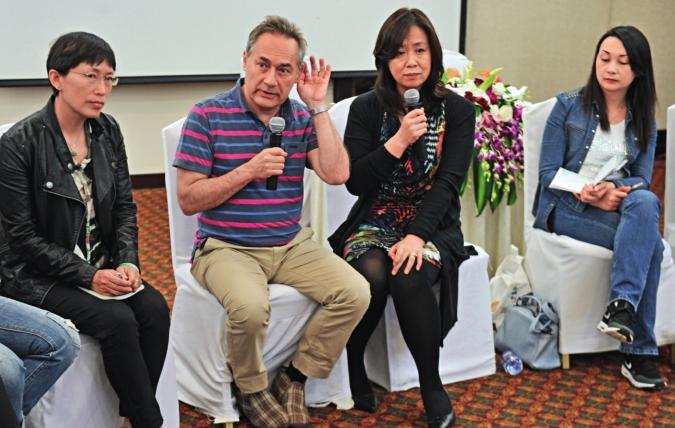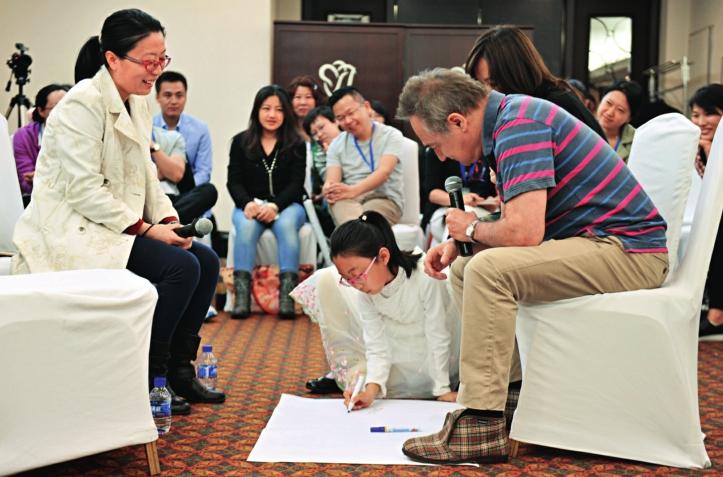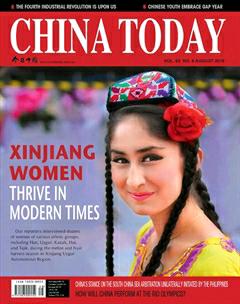Parenting Anxiety:The“New Normal”in China and the West
By JACQUES FOURRIER


A mild mid-April Saturday morning marked the third day that parents, educators, and professionals had gathered at an international hotel in Beijings Chaoyang District to listen to Dr. Ben Furmans advice, and to practice, under his guidance, their newly acquired parenting skills.
Parenting coaching and child-rearing skills have taken center stage in China over the last decade, with the emergence of middle-class urban parents keen on testing their assumptions and engaging with their children.
China now owns a plethora of coaches and counselors that provide millions of parents with a toolbox and instruction manual. Li Hongyan, who co-founded a training organization six years ago, is one of them. Having witnessed confusion and distress among both parents and children, she saw an opportunity to contribute to their wellbeing by inviting Dr. Furman to China.
Benefits of Good Parenting
Furman is a Finnish medical doctor and psychiatrist. He is also a psychotherapist specializing in family therapy. When he started out as a young practitioner, psychoanalytic theories dominated his particular field. “Children with problems would see a psychoanalyst twice a week, sometimes for years,” Furman said. “Consequently I developed an interest in solution-focused psychology, because as I knew it could be applied to all kinds of problems.”
In 1986, Furman co-founded the Helsinki Brief Therapy Institute. He has since taught solution-focused therapy internationally, and his books have been published in more than 20 languages. He formulated the “Kids Skills for Parents and Other Careers” hands-on training program, with the aim of promoting his solution-focused approach among the general public.
Mrs. Meng, a professional in her late 30s, was there at Furmans workshop. She acknowledged that parents in China need to improve their parenting skills. “A lot of parents impose their will on their children,” Meng said. “They dont realize that a child needs to be mature enough to make sense of these requirements.”
Furmans “Kids Skills” program has proven popular in China, and his seminars are always packed. He says his mission is to assist parents, educators, and children through simple, straightfor- ward, practical and creative techniques, and so make parenting more enjoyable.
The popularity of Furmans program echoes the dramatic shift of parenting styles that has taken place in China in the last decade. Shifting away from the authoritarian/permissive paradigm, researchers have formulated the concept of authoritative parenting, a combination of mutual respect, trust, and emotional closeness.

Yin Jianlis book A Good Mom Is Better than a Good Teacher best illustrates the wake-up call China experienced after its publication in 2009. Yin advocated effective and equal interaction between parents and their kids. Her book sent ripples across China whose effects are still felt today. The Chinese government also encouraged women and childrens organizations to provide general guidelines on parenting, thus acknowledging the connection between parenting and a harmonious society.
Parents of the World, Unite!
Furman sees no specific difference between children and teenagers throughout the world. “Families all have similar worries,” he said. Mounting pressure and failure to communicate may generate depression and suicidal tendencies. This is a current focus of public debate not only in China, but also in Western countries.
French psychiatrist and psychoanalyst Dr. Monique Lauret once remarked:“The Western model [of parenting] is confronted with a serious crisis of values. The model has indeed been dubbed permissive, and a connection exists between the values crisis and the emergence of individualism.”
Li Hongyan has experienced parenting anxiety firsthand. Her daughter grew up in Finland, a country where parenting is at odds with Chinas common practices. “We had endless conflicts and she ended up resenting me and my husband. There was a time when she was really depressed and we were terribly worried about her,” she recalled. “Growing pains are inevitable and parents are unprepared. Thats why we organize parenting seminars.”
Mrs. Zhang, an investor in one of a chain of early-childhood education centers, was there at Furmans seminar. She acknowledges that parents are fighting an uphill battle. “We need to pass on the parenting techniques weve learned during these seminars to parents and educators,” she said.
Pierre, a French expatriate in Beijing with a Chinese wife and a six-year-old child, believes that parenting transcends national or cultural barriers. “Some parents have a knack for communicating effectively and smoothly with their children. You can learn a lot from them,” he said.
Tiger Mother, Sheep Mother
Jessica is a typical nine-year-old Chinese child with a hectic schedule of evening and weekend classes. She has been learning to play the violin for some time now, and home practice has become a real chore. “My daughter often gives up in the face of difficulties. Besides, she resents my constantly nagging her,” Jessicas mother, Mrs. Chen said, so echoing the everyday plight of many ordinary Chinese families.
During this “Kids Skills” session, Furman gave a demo with Jessica and her mother that began with immediately establishing a rapport with the child.“We have to learn to praise children because its a fundamental element of happiness within the family,” Furman insisted during the debriefing. “This is the first step towards influencing behavior in a constructive way.”
In his program Furman coaches parents and children to overcome emotional or behavioral hurdles by learning crucial skills with the support of their immediate environment. “Problems are not treated as such, but as missing skills to be acquired,” Furman said. “Cooperation and empowerment are the keys to a successful outcome.”
He listened patiently to Mrs. Chen.“Im tired of nagging her every evening to practice the violin,” she told a nodding Furman while he maintained eye contact with her daughter.
“I cant stand my mothers constant nagging,” the exasperated Jessica interrupted. Furman asked her how she would feel if she could learn and use a specific skill to get rid of this problem. Jessica lit up. Furman had caught her attention.
“Its easier to influence people by telling them, in a gentle, respectful way, what you would like to see tomorrow rather than criticizing them for what they did yesterday,” he later explained. “Of course, you can complain, you can criticize, but the outcome is not satisfying.”
Jessica and her mother finally found a way to break the deadlock: drawing pictures. “How would you feel if your mother drew a violin to remind you of your daily violin practice? Or a simmering pot when its dinner time?” Furman asked. Jessica immediately felt more relaxed, and laughed as Furman drew a violin, making fun of his poor drawing skills. “I have learned to develop problem-solving skills that my daughter has agreed on,” a relieved Chen later said.
Furman is convinced that it is possible to solve most problems with a minimum of expert involvement. “Medication and long-term therapy is the last resort. We always try to talk to the child, to the family, and find solutions together,” he said. Cooperation and empowerment are the main tenets of Furmans psychological outlook on parenting, and his gift to China.

